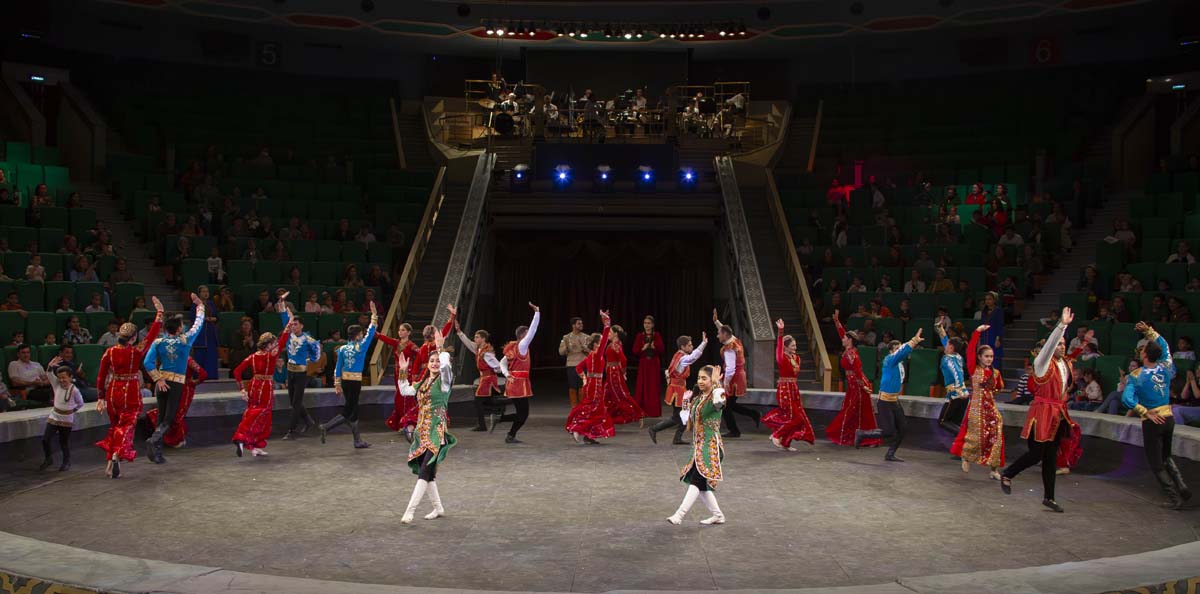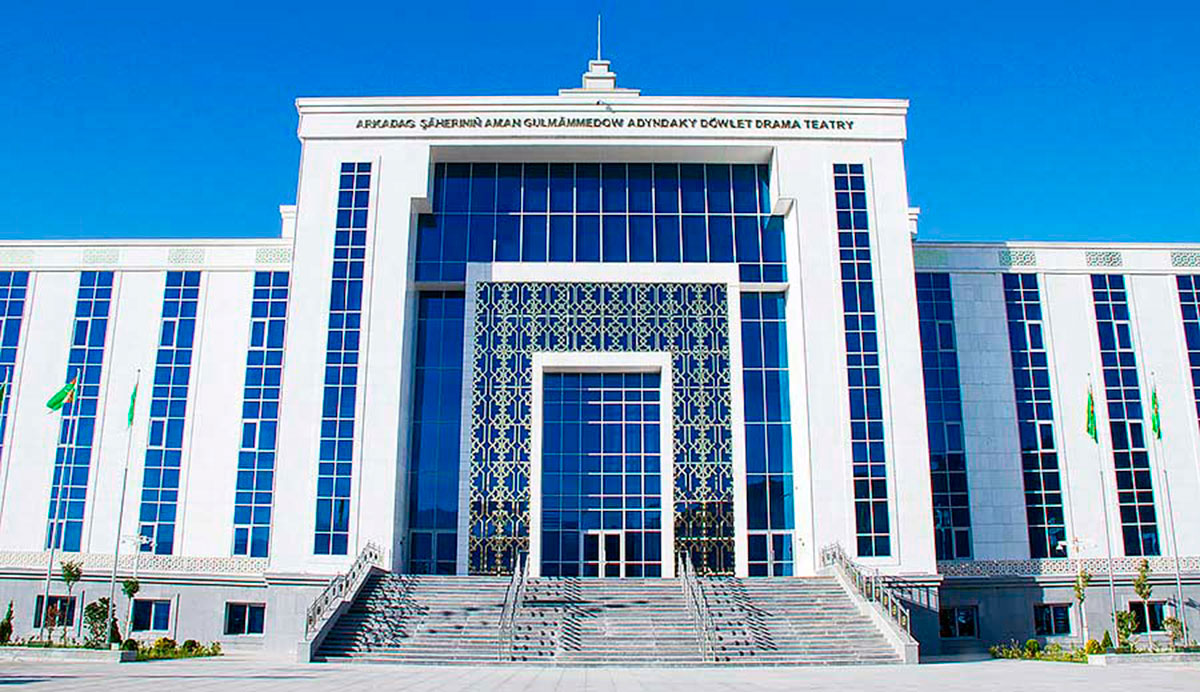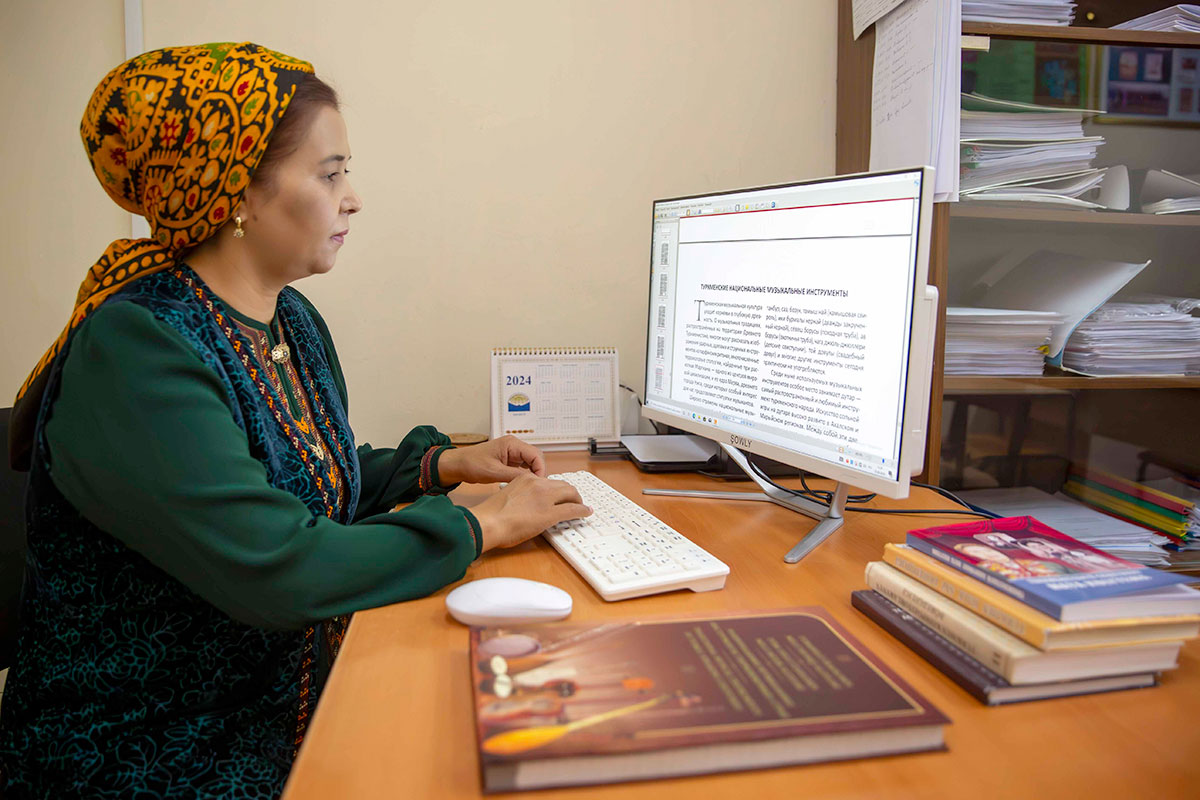Most of the information about the life of the original Turkmen poet Dosmammed is available through the study of his poems. Some information has been preserved in the legends and stories of the poet's descendants.
The boy was born in 1815. Dosmammed's father was Gurbanguly Molla, a righteous man who never parted with the Koran. He tried to educate all four of his sons, becoming the first teacher for Dosmammed and his three brothers Orazmammet, Ovezmammet and Nurmammet.
Especially during his studies, the future poet was interested in the literature of the East and folk tales and legends. Dosmammed wrote his first poems in early childhood. The death of his father, killed by Khan Allarhan, was the first tragedy in the life of the talented bakhshi. The second blow of fate for Dosmammed was the unhappy love for the girl Aydzhemal, who was married to an unloved one and soon died at the hands of her husband, who suspected that Aydzhemal had kept in her heart a love for the poet.
The 1970 painting "Bitter Fate" ("Kechpelek"), the music for which was written by the great Turkmen composer Nury Khalmamedov, conveys the sad story of the Turkmen bakhshi. Khalmamedov drew inspiration for the music for the film in the elegies of Dosmammed, whose fate resembles the fate of the main character of "Bitter Fate".
Despite his grief, the poet was able to become a good husband for his betrothed wife, who gave him three beloved sons: Mukhammetnur, Yusupsytdyk and Molla Gapur. Mukhammetnur and Yusupsytdyk died very young. The poet conveyed the pain of these heart-breaking losses to his descendants in the poems "Ogul" and "Aglashar".
Most of the poet's life is associated with Annau. Many trials fell to the lot of the inhabitants of this fortress in the 19th century. The constant raids of the Khivans and Iranians, which sometimes led to many months of sieges, were accompanied by numerous hardships for the people living here. During one of the sieges, the fortress was blocked for 13 months, and the Khivans blocked access to drinking water for the defenders of Annau who were inside.
Dosmammed was a brave and courageous man and at night he made an attempt to get water for his friends. As a result, the poet was seriously wounded.
The exact date of the death of the bakhshi has not been established. Different sources call the year of his death 1865 or 1867. It is only known that Dosmammed died during the next siege of the fortress, trying to alleviate the suffering of its inhabitants.
Molla Gapur became the successor of the bashhi clan. His fate was less tragic than the fate of his father and brothers.
Interest in the work of Dosmammed arose already at the end of the 19th century, and the accumulation and systematization of his works began at the beginning of the last century. So in 1902, the Russian orientalist, academician Alexander Nikolaevich Samoilovich, on his first visit to Turkmenistan, along with the poems of other poets, wrote down several elegies of Dosmammed. In 1917, some of the poet's works were published in the Transcaspian Turkmen Gazette.
The admirer of his work K. Agaliev did a lot to collect and study the writer's work. In 1945, the latter, under the editorship of Academician Garryev, publishes poems by Dosmammed, accompanying the publication with materials about the life and work of the poet.
Also, a great contribution to the study of Bashhi's creativity was made by the candidate of philological sciences Kurbanguly Guzichieva, who defended her dissertation in 1995, the topic of which was the literary heritage of the poet.
Roman Teplyakov







